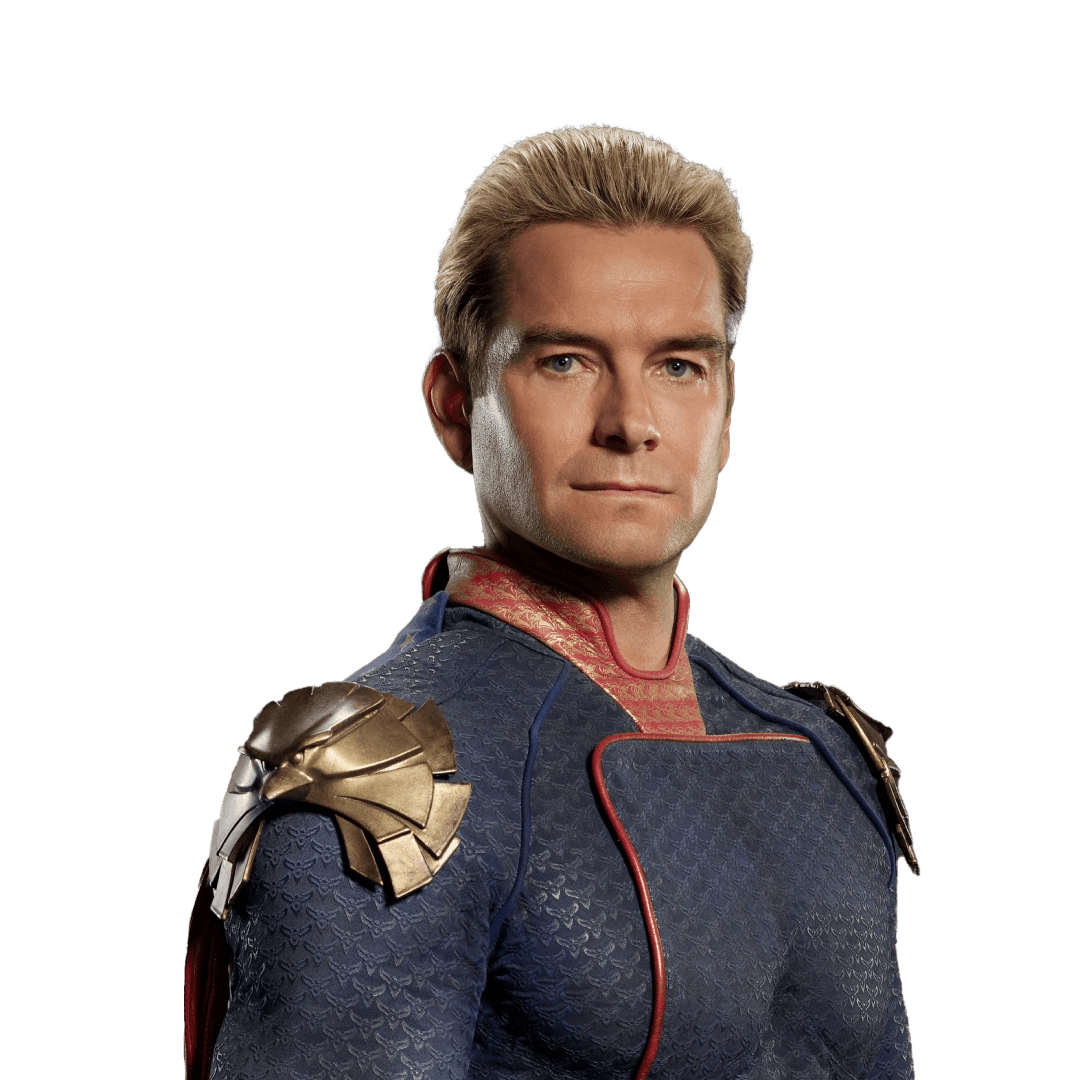Homelander is a character that has captivated audiences with his complex personality and dark undertones. As the main antagonist in the critically acclaimed series "The Boys," he embodies the paradox of a superhero who is both adored and feared. This article delves deep into the character of Homelander, exploring his origins, motivations, and the implications of his actions within the narrative framework of the series.
In a world where heroes are manufactured and marketed, Homelander stands as the pinnacle of power, representing the dark side of celebrity culture and the moral dilemmas that come with unchecked authority. His character challenges viewers to reconsider what it means to be a hero in modern society. This exploration will highlight key aspects of Homelander's character, from his backstory to his psychological complexities.
By examining Homelander's traits and his role in "The Boys," we can gain insights into broader themes of power, morality, and the human condition. This article aims to provide a comprehensive understanding of Homelander, backed by reputable sources and an analysis of the show's cultural impact.
Table of Contents
- Biography of Homelander
- Characteristics of Homelander
- Homelander's Powers and Abilities
- The Psychology of Homelander
- Homelander's Relationships
- Cultural Impact of Homelander
- Comparisons with Other Characters
- Conclusion
Biography of Homelander
Homelander, originally known as John, is a character created by writer Garth Ennis and artist Darick Robertson. He first appeared in the comic series "The Boys" in 2006 and has since been adapted into a popular television series by Amazon Prime Video. Below is a brief overview of his biography:
| Attribute | Details |
|---|---|
| Name | John |
| Alias | Homelander |
| First Appearance | The Boys #1 |
| Portrayed by | Antony Starr |
| Affiliation | The Seven |
| Abilities | Superhuman strength, flight, heat vision, enhanced durability |
Characteristics of Homelander
Homelander's character is a multifaceted blend of heroism and villainy. Some of his defining characteristics include:
- Charismatic Leader: Homelander is portrayed as a charismatic figure, drawing public admiration and loyalty.
- Manipulative: He often uses manipulation to maintain his image and control the narrative surrounding him.
- Emotionally Detached: Despite his outward charm, he exhibits a lack of empathy, viewing others as tools for his own gain.
- Desire for Power: His insatiable hunger for power drives many of his actions throughout the series.
Homelander's Powers and Abilities
As the most powerful member of The Seven, Homelander possesses a range of superhuman abilities:
- Superhuman Strength: He can easily overpower opponents and lift heavy objects.
- Flight: Homelander can fly at incredible speeds, making him a formidable foe.
- Heat Vision: He has the ability to emit powerful beams of heat from his eyes.
- Enhanced Durability: His body is resistant to most forms of damage, allowing him to withstand attacks that would incapacitate others.
The Psychology of Homelander
Homelander's character is a fascinating study in psychology. His upbringing as a lab experiment devoid of parental affection plays a crucial role in shaping his psyche:
Childhood Trauma
Homelander was raised in a lab environment, stripped of familial love and nurturing. This traumatic childhood has led to profound issues with attachment and emotional regulation.
Superiority Complex
His powers have instilled in him a sense of superiority over others. This belief often manifests in violent and tyrannical behavior towards those he perceives as weaker.
Homelander's Relationships
The relationships Homelander forms throughout "The Boys" are often fraught with manipulation and conflict:
- Madelyn Stillwell: Their relationship is based on mutual benefit, with Homelander manipulating Madelyn for his gain.
- Queen Maeve: Their dynamic is complicated by shared experiences and differing morals.
- Butcher and The Boys: Homelander's rivalry with Butcher is central to the plot, representing the clash between heroism and vigilantism.
Cultural Impact of Homelander
Homelander has become a cultural icon, representing the darker side of heroism and celebrity culture:
- Critique of Superhero Tropes: His character challenges traditional notions of heroism, highlighting the flaws within the superhero genre.
- Representation of Power Dynamics: Homelander's actions serve as an allegory for the dangers of absolute power and celebrity worship.
Comparisons with Other Characters
When comparing Homelander to other characters in the superhero genre, notable parallels and contrasts emerge:
- Superman: Both characters possess incredible powers, yet Homelander embodies a darker, more morally ambiguous version.
- Batman: Unlike Batman, who operates with a moral code, Homelander's actions are primarily self-serving.
Conclusion
In conclusion, Homelander serves as a compelling antihero whose complexities challenge our perceptions of morality and heroism. His character is a reflection of societal issues relating to power, celebrity, and the human condition. As we delve deeper into his psyche and actions, we are prompted to question what it truly means to be a hero in today's world.
We invite you to share your thoughts on Homelander and how his character resonates with you. Feel free to leave a comment below and check out other articles on our site for more insights into the world of superheroes.
Thank you for reading! We hope you found this article informative and engaging. Be sure to visit us again for more in-depth explorations of your favorite characters and themes.




